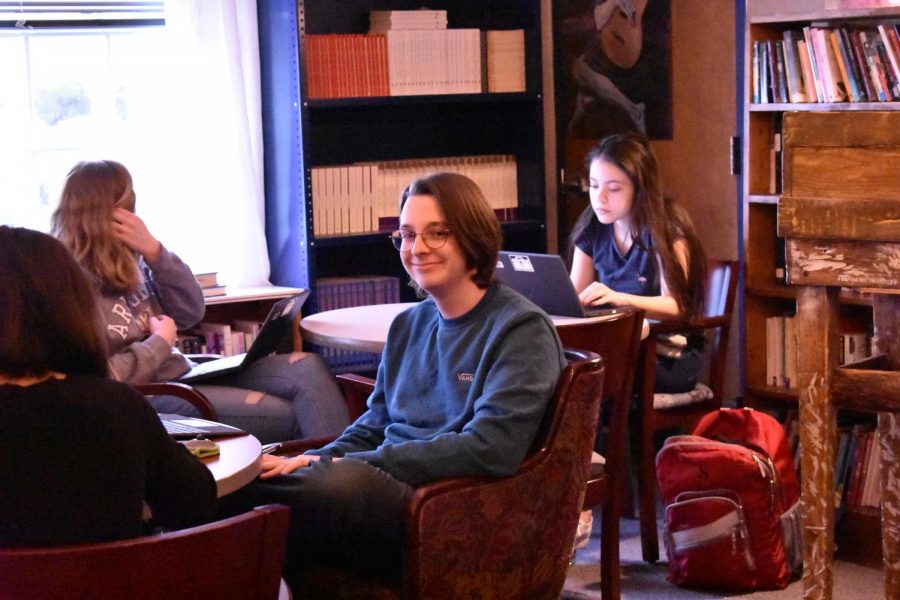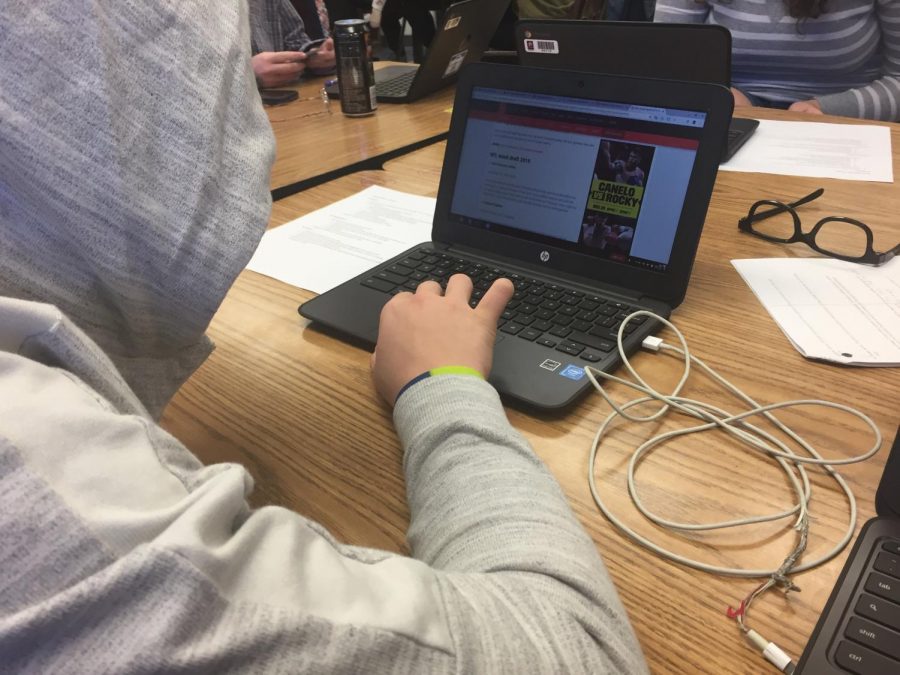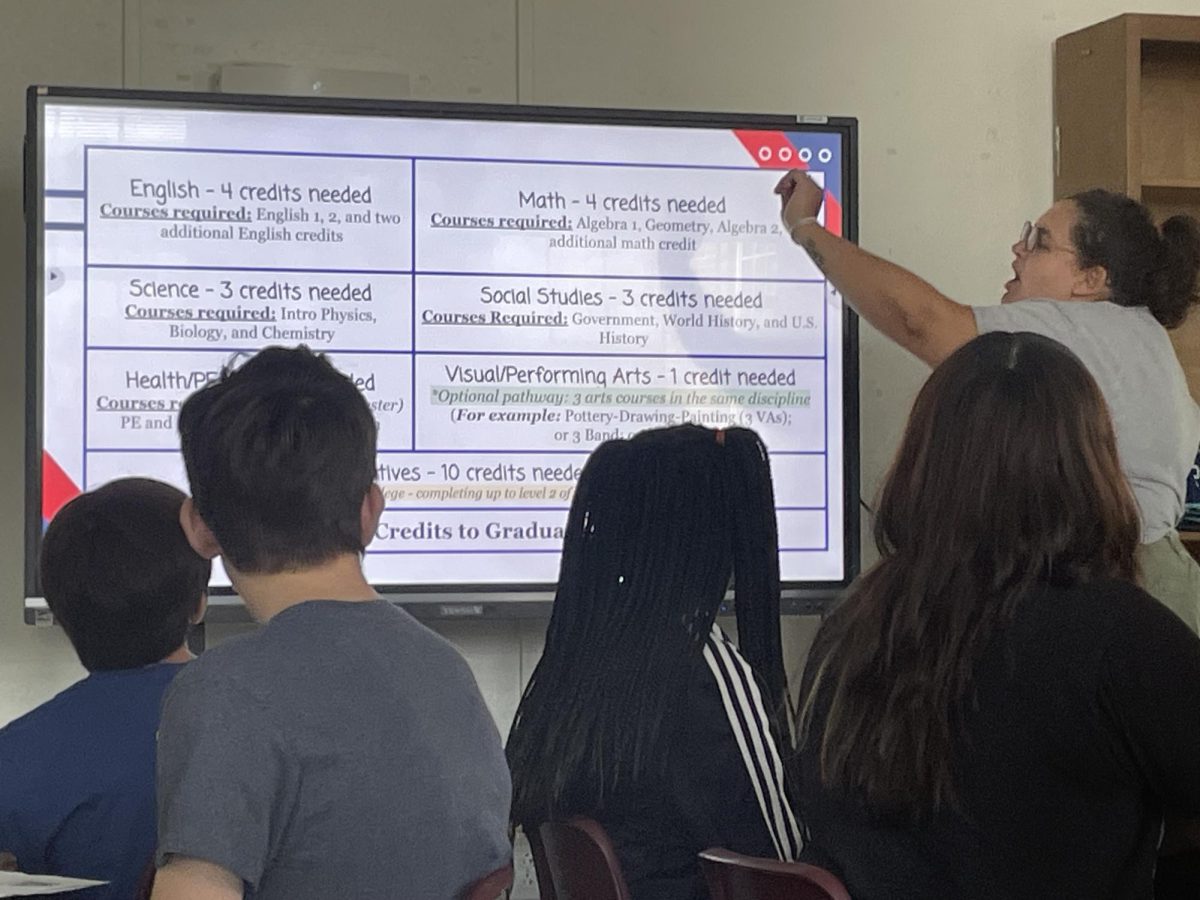Have We Become Too Connected
Walker Prather working on a literary arts assignment.
December 17, 2018
“The advance of technology is based on making it fit in so that you don’t really even notice it, so it’s part of everyday life,” Bill Gates.
Today’s technology is so far advanced, that everyone is always connected. Every minute of every hour, every hour of every day, there are millions of people connected with one another. Technology has given us the capability to know exactly what is happening around the world, as it’s happening. You and I are able to know information that has happened miles and miles away from us, just from the click or tap of a button. Technology has now become a concern, as it seems that we are too reliant and connected to it, forgetting the quality of communicating face-to-face with each other.
An article released in 2012 by CBS News raised the question, have we become slaves to our devices, and overly obsessed with knowing exactly what is going on around us? According to the author, “Ninety percent of American adults own cell phones, and, whether talking or texting, it seems that 90 percent of the time, they are using them.” The CBS article also goes on to say that individuals who are 18 to 24 years old send over 3,000 text messages a month.
Phones are very versatile, you can call, text, and do so much more. Technology has helped in advancing our lives in many ways, and made the way we communicate with one another so much easier. Technology has enabled us to connect with anyone in the world whenever we choose. As technology increases, we begin to connect more, but start to lose the connection of human interaction, as we disconnect with one another and connect to technology.
The problem then comes into play, in regards to the consequences of being too connected. Is this type of behavior truly healthy or damaging to the users of technology? In the CBS News article, Sergey Golitsynski, a researcher, conducted an experiment by requesting that students from all around the world disconnect from their cellphones for 24 hours. Seventy percent of students dropped out of the experiment because they could not handle being away from their phones for that long of a time. Students, and people for that matter, are too connected to their devices and technology.
Technology is not good or bad, it just simply is. It is up to the user to utilize it in a way that can be beneficial. There are as many pros to this subject as there are cons. For instance, friendships have started and blossomed from different social platforms. Technology is a great way to gather information, a great tool to communicate, a great tool to learn and a tool for many other things. There is an immense number of helpful apps at the tips of our fingertips. Just like technology has its pros, there are also negatives that come along with technology. Have you ever made plans to sleepover at a friend’s house and catch up, and see how you’ve both been? When you go over do you actually talk and see how each other have been, or do you sit there staring at the screen of your phone?
It’s sad to see that we’ve allowed technology to take over our daily lives at such a grand scale. We tend to distance ourselves from those around us, posting even the smallest things for the world to see, instead of living in the moment and experiencing the feeling of excitement at that particular moment. It is now up to us to take a step back in disconnecting from technology, so we can reconnect once again to the real world.
“I think we have become too connected, but in a way where we can retract our steps. Technology has made things a lot easier. Keeping in touch, making plans, getting help right when you need it, staying in touch with loved ones, and so many more things. We have to remember that technology isn’t the reason we’ve become too connected. We are the ones who’ve made that choice on our own,” Elise King, sophomore at Lafayette High School.
So, maybe technology isn’t the problem, maybe it is us.





